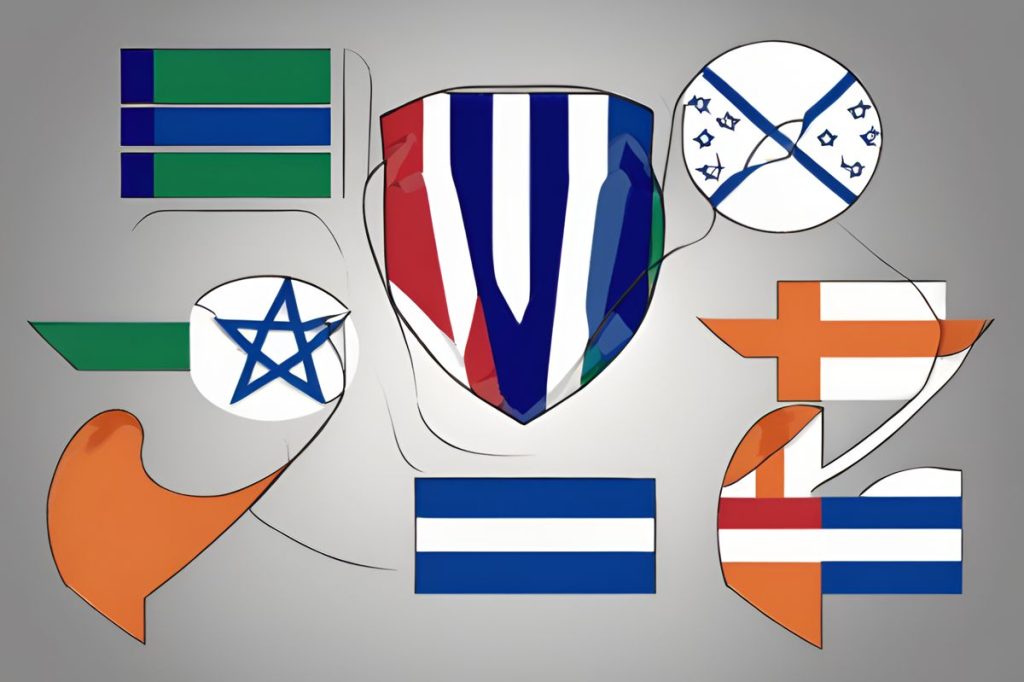The visit of President Nikos Christodoulides to the Netherlands highlighted the strong bilateral ties between Cyprus and the Netherlands, coinciding with Cyprus’ 20th anniversary of EU accession. The meeting with Prime Minister Mark Rutte emphasized mutual support on defense, migration, and a united stance on EU and international matters, showcasing the enduring nature of diplomatic bonds.
Why was the visit of President Nikos Christodoulides to the Netherlands significant?
The visit of President Nikos Christodoulides to the Netherlands was significant as it marked the first official visit by a Cypriot President in 34 years, coinciding with Cyprus’ 20th anniversary of EU accession. It highlighted strong bilateral ties, mutual support on issues like defense and migration, and a united stance on EU and international matters.
A Landmark Visit
Mark Rutte, the Prime Minister of the Netherlands, has recently marked a significant event in the history of Dutch-Cypriot relations. The visit of President Nikos Christodoulides to the Netherlands has been described as “historic” by Rutte. This meeting is not only remarkable for its rarity—with 34 years having passed since a Cypriot President last made an official visit to the country—but also because it coincides with the 20th anniversary of Cyprus’ accession to the European Union, a momentous milestone in the island nation’s history.
During their interaction, Rutte expressed a deep appreciation for the strong bilateral ties that the Netherlands shares with Cyprus. The countries find common ground on a host of issues, including economic cooperation, defense strategies, migration challenges, regional stability, and various aspects pertaining to the European agenda. Such alignment underscores the importance of regular dialogues and visits to further solidify these partnerships.
A Friend in Times of Need
The Dutch Prime Minister also took the opportunity to extend his gratitude towards Cyprus, particularly for the island’s pivotal role in facilitating the evacuation of Dutch nationals amidst the violence in the Gaza region in October of the previous year. This act of assistance highlighted the strategic position and humanitarian commitment of Cyprus within the region.
Emphasizing Cyprus’s significant role further, Rutte acknowledged the country’s initiative to establish a sea corridor that aimed to deliver aid to Gaza, thus playing a vital role in addressing the humanitarian crisis. This initiative represents how small nations can exert strong influence in regional politics and humanitarian efforts.
Cyprus and the Middle East
On his part, President Christodoulides threw light on the close geographical and political connections Cyprus has with the Middle East. Being the nearest EU member state to the region, Cyprus actively seeks to leverage its strategic position to aid in resolving humanitarian issues. The President reiterated the excellent bilateral relations between Cyprus and the Netherlands, emphasizing a shared perspective on major EU and international matters.
Such bilateral visits aren’t just ceremonial—they’re a crucible for policy-making and diplomatic engagement. The dialogue between Christodoulides and Rutte was followed by a working meal, which likely provided a platform for deeper discussions on the various topics of mutual interest.
Royal Acknowledgment and Cultural Exchange
Earlier in the day, Christodoulides was received by King Willem-Alexander at the Huis ten Bosch palace, thereby adding a royal touch to the diplomatic visit. These high-level interactions signify the robust cultural and diplomatic exchange between the two nations, bridging gaps and fostering mutual respect.
The visit underscores the importance of sustained and strategic international relationships. By commemorating milestones and expressing mutual support, Cyprus and the Netherlands set an example of the enduring nature of diplomatic bonds. This cooperation goes beyond the mere transactional, hinting at a deeper commitment to shared values and global stability.
As the day’s events unfolded, they not only marked a significant chapter in the annals of Dutch-Cypriot relations but also paved the way for further collaborations. Such interactions between nations are essential in a world that is increasingly interconnected and interdependent.
1. Why was the visit of President Nikos Christodoulides to the Netherlands significant?
The visit of President Nikos Christodoulides to the Netherlands was significant as it marked the first official visit by a Cypriot President in 34 years, coinciding with Cyprus’ 20th anniversary of EU accession. It highlighted strong bilateral ties, mutual support on issues like defense and migration, and a united stance on EU and international matters.
2. What are some key areas of mutual support between Cyprus and the Netherlands?
Cyprus and the Netherlands find common ground on various issues such as economic cooperation, defense strategies, migration challenges, regional stability, and aspects of the European agenda. The countries showcase mutual support on defense, migration, and a united stance on EU and international matters.
3. How did Cyprus play a role in facilitating the evacuation of Dutch nationals in the Gaza region?
Cyprus played a pivotal role in facilitating the evacuation of Dutch nationals amidst the violence in the Gaza region by establishing a sea corridor for aid delivery. This act of assistance highlighted Cyprus’s strategic position and humanitarian commitment within the region.
4. How do high-level visits like this contribute to diplomatic relationships between nations?
High-level visits like the one between President Nikos Christodoulides and Prime Minister Mark Rutte contribute to diplomatic relationships by solidifying partnerships, fostering mutual respect, bridging cultural gaps, and providing platforms for deeper discussions on topics of mutual interest. These interactions showcase the enduring nature of diplomatic bonds and the commitment to shared values and global stability.

